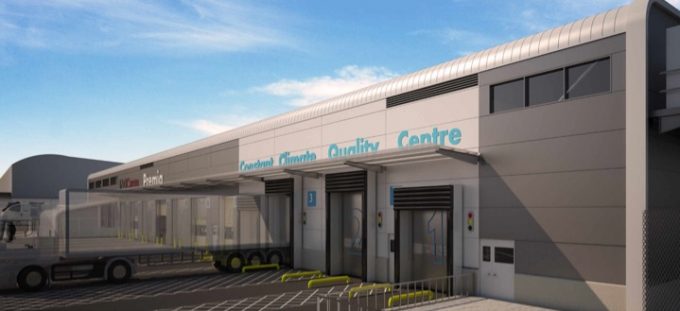For forwarders, 'a hot Q4' will be all about controlling air cargo capacity
“Capacity is going to be king for the rest of 2024.” That’s the word from forwarders ...

IAG Cargo is bucking trends and investing in air freight – with an eye firmly on the higher prize of premium products.
Yesterday it announced it is to build a new premium freight facility at Heathrow, double the size of its existing centre, at a cost of £55m.
The carrier also announced it is starting a time-critical product on October 3 for emergency shipments.
Building work on the new Premia centre begins next year and it will open in 2018. It will accommodate the carrier’s premium cargo, with a larger pharmaceutical area; delivery and collection doors and an advanced warehouse management system.
It will operate alongside IAG’s existing facility and manage the flow of express and passive cold chain shipments.
Meanwhile, customers choosing Critical, which will be the highest-priced IAG Cargo product, will receive a guarantee-to-fly on the service booked, access to already-full flights, as well as a fast-track check-in.
Stuart Stobie, director of the UK’s Priority Freight which specialises in the time-critical market said: “It’s a little like the Lufthansa offering through Flash and gives us another first flight/must go option. I see it as a good thing that we have an option to use our own national carrier to assist with guaranteed uplift, which will assist us in forming solutions to speed up our customers’ supply chains globally.”
The carrier said it had been testing the product for a year, and had already received interest from hi-tech and aerospace shippers.
Investment has become increasingly rare in air freight. Lufthansa Cargo, a carrier with a comparable focus on higher-yield cargo, has delayed the construction of its cargo centre and recently opted to launch a “budget” product.
“It’s easy to look at the industry and say there’s not much room for investment,” said David Shepherd, IAG Cargo’s commercial director. “But it’s a vote of confidence in the business.”
IAG Cargo has clearly also invested in people, drawing in outsiders who know the shipper sector, and implementing training programmes to ensure its stations can offer a consistent product across the four-airline group.
It was the first public outing for new CEO Drew Crawley, who appears to have brought fresh thinking into the business.
He said: “It’s been an exciting seven months. No one mentioned that the cargo market would be quite as tough as it’s turned out to be.
“We think premium is where we can really differentiate. I believe in getting to understand the needs of the customer – by which I mean the shipper.
“If we can work with the freight forwarder … we believe we can make a difference in the market.”
IAG is also looking at the cross-border e-commerce market, which has seen 27% growth and has hired “a guy who knows about it”, said Mr Crawley.
“We need to throw the net wide and see what’s going on, by talking to forwarders, the first- and last-mile providers, and see where we can add value. Maybe we can’t.”
But he noted that the short-haul bellies were under-used. They give speeds that a truck can’t, which could help e-commerce shippers.
Previously chief commercial officer for British Airways, Mr Crawley said he had noticed both good and bad things about the cargo business in comparison to passengers.
“Decisions are made much faster – I was pleasantly surprised by that,” he said. “But the late adoption of technology is not as good.
“There are a bunch of processes, and paper, which add cost and complexity for us, forwarders and shippers. We need to go up two or three gears. Perhaps IATA could be firmer with deadlines for paperless processes. You don’t need added cost when there are not big margins in this business.”
Paperless passenger tickets were introduced across the board in 2009 after IATA mandated the change.

Drew Crawley
Mr Crawley also believes a change in the distribution model of air freight is inevitable, and should be seen as an opportunity.
“The way people make bookings is ripe for disruption,” he said. “The technology is there to use and it’s incumbent on us, forwarders and shippers to be aware of this. There should be a clean price, no questions.”
His focus for now, though, is growing IAG’s premium market.
“We need to get ahead of the game, to constantly understand the needs of the market.”
Comment on this article